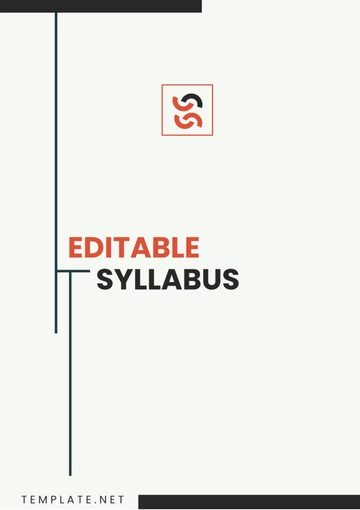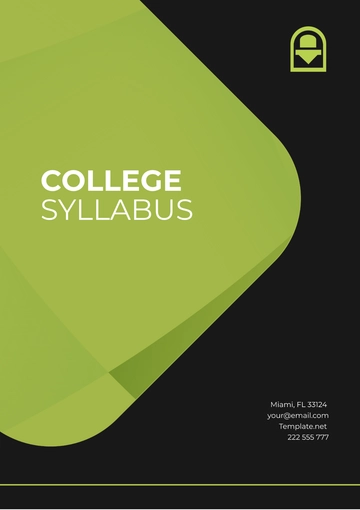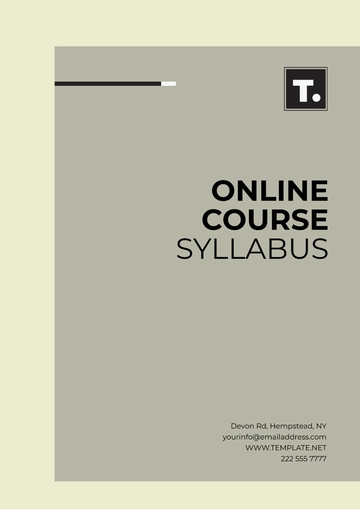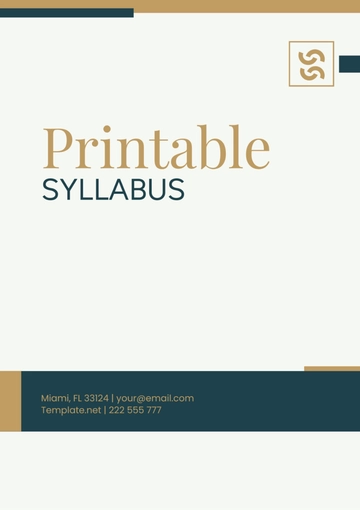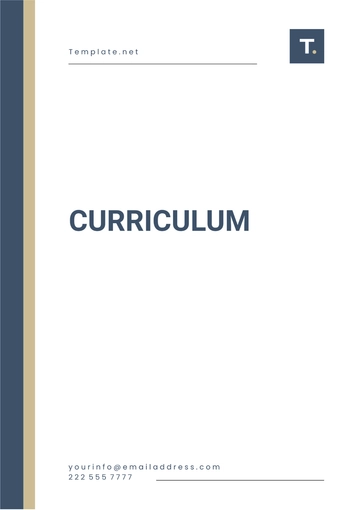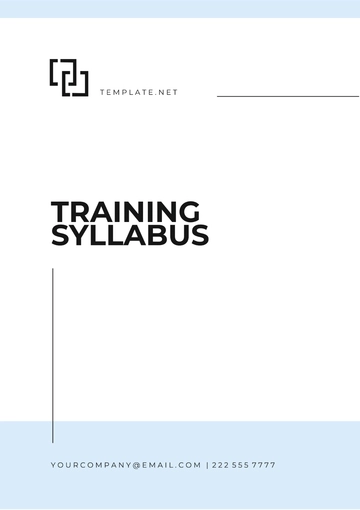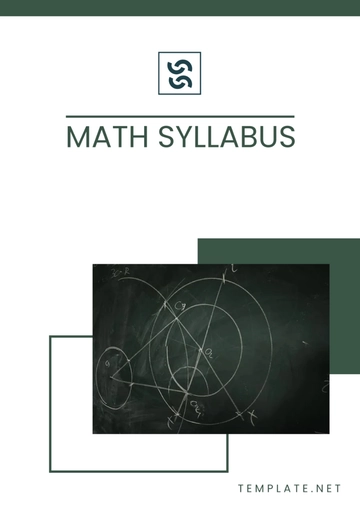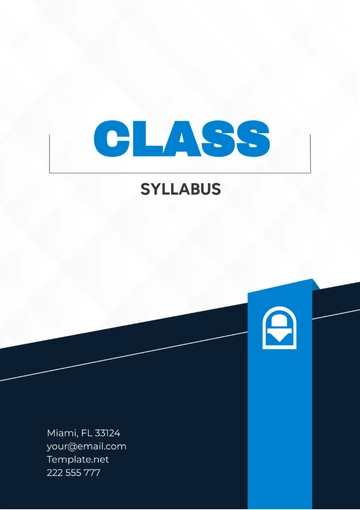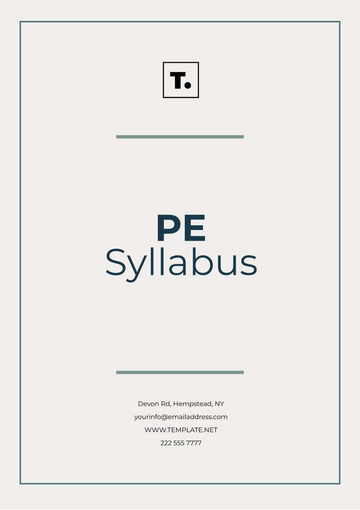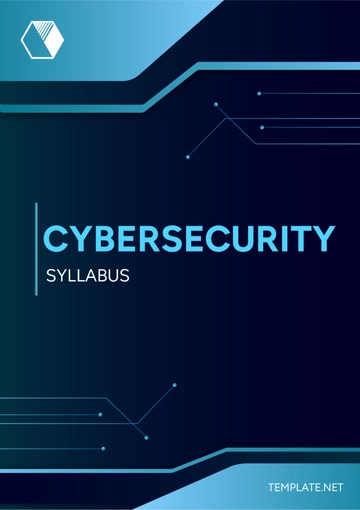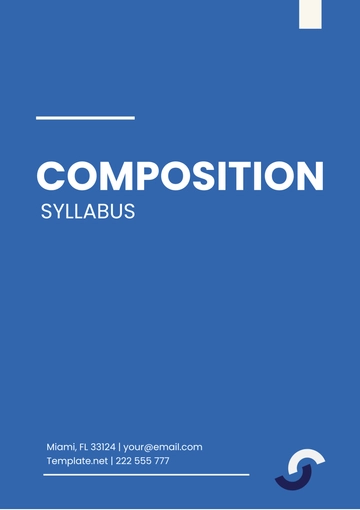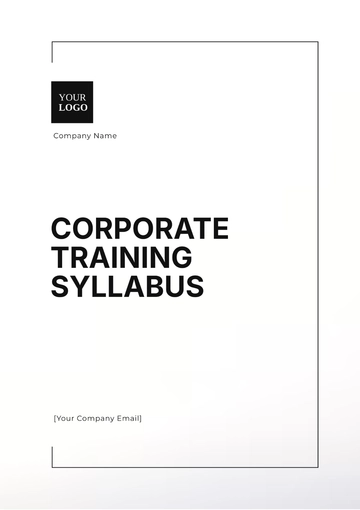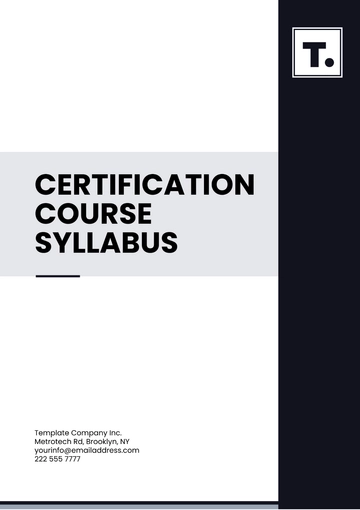Free Forensic Psychology Syllabus

Forensic Psychology Course
Title | [COURSE TITLE] |
Course Code | [COURSE CODE] |
Institution Hours | [INSTITUTION HOURS] |
Class Location | [CLASS LOCATION] |
Class Time | [CLASS TIME] |
Class Duration | [DATE] - [DATE] |
1. Course Description
This Forensic Psychology course aims to give students a comprehensive introduction to fundamental concepts and principles of the field. We plan to explore how psychology intersects with various aspects of the justice system, through in-depth discussions and analysis. We'll also detail the broad duties and roles of a forensic psychologist, providing a well-rounded understanding of the profession.
2. Instructor Information
Instructor: [YOUR NAME]
Email: [YOUR EMAIL]
3. Learning Objectives
Understand the key concepts and theories in forensic psychology
Explore the various roles of a forensic psychologist within the justice system
Develop a deep understanding of forensic psychology research methodology.
Analyze real-world cases using theories and practices in forensic psychology
Demonstrate proficiency in discussing forensic psychology topics in written and oral form.
4. Course Schedule
Week | Topic | Reading |
|---|---|---|
1 | Introduction to Forensic Psychology | Chapter 1 |
2 | Psychological Assessment in Forensic Settings | Chapter 2 |
3 | The Legal System and Criminal Behavior | Chapter 3 |
4 | Investigative Psychology and Profiling | Chapter 4 |
5 | Eyewitness Testimony and Memory | Chapter 5 |
6 | Interrogation Techniques and False Confessions | Chapter 6 |
7 | Mental Health Law and Competency | Chapter 7 |
8 | Juvenile Justice and Delinquency | Chapter 8 |
9 | Domestic Violence and Intimate Partner Violence | Chapter 9 |
10 | Sexual Offenders and Sex Crimes | Chapter 10 |
11 | Forensic Assessment and Treatment Planning | Chapter 11 |
12 | Ethics in Forensic Psychology | Chapter 12 |
13 | Emerging Trends and Future Directions in Forensic Psychology | Chapter 13 |
14 | Review and Preparation for Final Exam | Review of all chapters |
5. Required Reading and Materials
Introduction to Forensic & Criminal Psychology (5th edition) by Dennis Howitt
Criminal Behavior: A Psychosocial Approach (10th edition) by Curt R. Bartol & Anne M. Bartol
Forensic Psychology by Joanna Pozzulo, Craig Bennell, Adelle Forth
The Anatomy of Motive: The FBI's Legendary Mindhunter Explores the Key to Understanding and Catching Violent Criminals by John Douglas
Various academic articles and case studies (will be provided)
6. Assignments and Assessments
Weekly quizzes to assess understanding of each week's topic
Group project analyzing a given case study using principles of forensic psychology
Mid-term and Final exams covering major topics in the syllabus
Participation in class discussions
Final research paper on a chosen topic relevant to forensic psychology
7. Course Policy
All assignments must be submitted on time, any delay will result in a decrease in mark
Academic dishonesty will not be tolerated and may result in a failing grade
Students are expected to prepare and participate in each class
Respectful and professional behavior is expected at all times
Regular attendance - more than 3 unexcused absences can affect your final grade
8. Grading Policy
Grading Component | Weight (%) |
|---|---|
Participation | 10 |
Weekly Quizzes | 20 |
Mid-term and Final Exams | 40 |
Assignments | 20 |
Final Research Paper | 10 |
9. Communication Guidelines
Effective communication is key to success in this course. Students are encouraged to reach out to the instructor via email for any questions, concerns, or clarifications. The instructor will strive to respond to all inquiries within a reasonable timeframe.
10. Course Evaluation
At the end of the course, students will have the opportunity to provide feedback through course evaluations. Feedback from students is highly valued and will be used to improve the course for future iterations.
Disclaimer
Please note that the syllabus provided is subject to potential adjustments or revisions as deemed necessary throughout the duration of the course. Any modifications will be communicated to students in a timely manner, and students are expected to stay updated with any changes.
- 100% Customizable, free editor
- Access 1 Million+ Templates, photo’s & graphics
- Download or share as a template
- Click and replace photos, graphics, text, backgrounds
- Resize, crop, AI write & more
- Access advanced editor
Introducing the Forensic Psychology Syllabus Template from Template.net - your comprehensive solution for crafting dynamic course outlines. With its editable and customizable features, this template empowers educators to tailor content to their specific needs. Seamlessly edit in our Ai Editor Tool for unparalleled convenience and efficiency. Upgrade your syllabus today!

